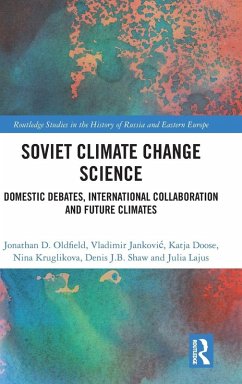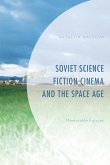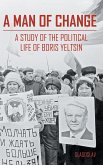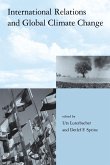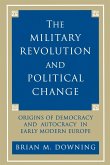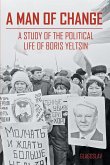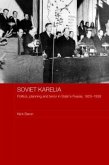Jonathan D. Oldfield, Vladimir Jankovic, Katja Doose
Soviet Climate Change Science
Domestic Debates, International Collaboration and Future Climates
Jonathan D. Oldfield, Vladimir Jankovic, Katja Doose
Soviet Climate Change Science
Domestic Debates, International Collaboration and Future Climates
- Gebundenes Buch
- Merkliste
- Auf die Merkliste
- Bewerten Bewerten
- Teilen
- Produkt teilen
- Produkterinnerung
- Produkterinnerung
Soviet Climate Change Science explores the character and range of Soviet contributions to the emerging understanding of large-scale anthropogenic climate change during the post-1945 period.
Andere Kunden interessierten sich auch für
![History of the Climate Change on the Coromandel Coast History of the Climate Change on the Coromandel Coast]() S. Jeyaseela StephenHistory of the Climate Change on the Coromandel Coast171,99 €
S. Jeyaseela StephenHistory of the Climate Change on the Coromandel Coast171,99 €![Soviet Science Fiction Cinema and the Space Age Soviet Science Fiction Cinema and the Space Age]() Natalija MajsovaSoviet Science Fiction Cinema and the Space Age40,99 €
Natalija MajsovaSoviet Science Fiction Cinema and the Space Age40,99 €![A Man of Change A Man of Change]() M. R. ZezinaA Man of Change32,99 €
M. R. ZezinaA Man of Change32,99 €![International Relations and Global Climate Change International Relations and Global Climate Change]() Urs Luterbacher / Detlef F. Sprinz (eds.)International Relations and Global Climate Change29,99 €
Urs Luterbacher / Detlef F. Sprinz (eds.)International Relations and Global Climate Change29,99 €![The Military Revolution and Political Change The Military Revolution and Political Change]() Brian DowningThe Military Revolution and Political Change48,99 €
Brian DowningThe Military Revolution and Political Change48,99 €![A Man of Change A Man of Change]() M. R. ZezinaA Man of Change27,99 €
M. R. ZezinaA Man of Change27,99 €![Soviet Karelia Soviet Karelia]() Nick BaronSoviet Karelia178,99 €
Nick BaronSoviet Karelia178,99 €-
-
-
Soviet Climate Change Science explores the character and range of Soviet contributions to the emerging understanding of large-scale anthropogenic climate change during the post-1945 period.
Produktdetails
- Produktdetails
- Verlag: Routledge
- Seitenzahl: 186
- Erscheinungstermin: 10. November 2025
- Englisch
- Abmessung: 240mm x 161mm x 15mm
- Gewicht: 449g
- ISBN-13: 9781032658308
- ISBN-10: 1032658304
- Artikelnr.: 75127140
- Herstellerkennzeichnung
- Libri GmbH
- Europaallee 1
- 36244 Bad Hersfeld
- gpsr@libri.de
- Verlag: Routledge
- Seitenzahl: 186
- Erscheinungstermin: 10. November 2025
- Englisch
- Abmessung: 240mm x 161mm x 15mm
- Gewicht: 449g
- ISBN-13: 9781032658308
- ISBN-10: 1032658304
- Artikelnr.: 75127140
- Herstellerkennzeichnung
- Libri GmbH
- Europaallee 1
- 36244 Bad Hersfeld
- gpsr@libri.de
Jonathan D. Oldfield is Professor in Russian Environmental Studies at the University of Birmingham, UK. His current research explores Soviet and Russian understandings of climate science, geoengineering and society-nature interactions. Vladimir Jankovi¿ is Reader in History of Science and Atmospheric Humanities at the University of Manchester. His main area of research focuses on the cultures of weather and climate since the 1700s. He is Chair of the History Group of the Royal Meteorological Society. He has previously published Reading the Skies (2001) and Confronting the Climate (2011) and is currently writing on the bilateral approach to climate research during the Cold War. Katja Doose is Assistant Professor at the University Lyon 2. She works on the environmental history of the nineteenth and twentieth centuries and the history of the earth sciences. Nina Kruglikova was a postdoctoral researcher on the 'Soviet Climate Science and Its Intellectual Legacies' project at the University of Birmingham and an honorary research associate in the School of Geography and the Environment at the University of Oxford. She holds a DPhil in Geography and the Environment from Trinity College, Oxford, and her research expertise covers sustainable development, climate change studies and climate science diplomacy. She is currrently Research Associate in the History and Philosophy of Science at the University of Manchester. Denis J.B. Shaw was an honorary senior research fellow at the University of Birmingham, UK, where he had formerly been Reader in Russian Geography. His most recent book, published posthumously, was titled Reconnoitring Russia: Mapping Exploring and Describing Early Modern Russia, 1613-1825 (2024). Julia Lajus is a Core Fellow at the Helsinki Collegium for Advanced Studies (HCAS), University of Helsinki, Finland. In 2023, she was a visiting associate professor at Columbia University in the City of New York, where she taught the history of the Arctic and the history of climate science. She publishes on the history of marine and polar environments and sciences.
Chapter 1 Soviet science and the challenge of climate change
Chapter 2 Institutional underpinnings of climate science in the Soviet
Union
Chapter 3 Soviet scientific debates concerning climate change
Chapter 4 Cold War climate science: collaboration and competition,
1945-1991
Chapter 5 Greenhouse glasnost
Chapter 6 Soviet climate science, its legacies and climate politics
Chapter 7 Conclusion
Chapter 2 Institutional underpinnings of climate science in the Soviet
Union
Chapter 3 Soviet scientific debates concerning climate change
Chapter 4 Cold War climate science: collaboration and competition,
1945-1991
Chapter 5 Greenhouse glasnost
Chapter 6 Soviet climate science, its legacies and climate politics
Chapter 7 Conclusion
Chapter 1 Soviet science and the challenge of climate change
Chapter 2 Institutional underpinnings of climate science in the Soviet
Union
Chapter 3 Soviet scientific debates concerning climate change
Chapter 4 Cold War climate science: collaboration and competition,
1945-1991
Chapter 5 Greenhouse glasnost
Chapter 6 Soviet climate science, its legacies and climate politics
Chapter 7 Conclusion
Chapter 2 Institutional underpinnings of climate science in the Soviet
Union
Chapter 3 Soviet scientific debates concerning climate change
Chapter 4 Cold War climate science: collaboration and competition,
1945-1991
Chapter 5 Greenhouse glasnost
Chapter 6 Soviet climate science, its legacies and climate politics
Chapter 7 Conclusion

